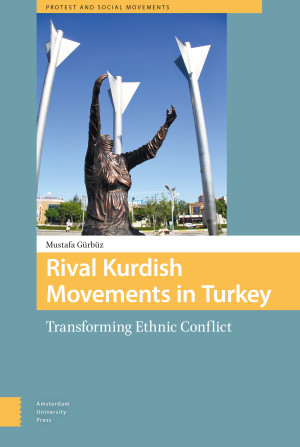This book explores the conditions that encourage non-violent civic engagement in emerging civil societies. Gürbüz examines the radical transformations over the past decade in the politics of Turkey's Kurdish minority. On the eve of the new millennium, the Turkish state was still openly denying the existence of Kurds, calling them "mountain Turks," and Kurdish populated cities were ruled under martial law. Kurdish politics in Turkey was dominated by a revolutionary movement, the PKK, which engaged in violent clashes with the state. Less than a decade later, the PKK's rebellion had all but ended, and Kurdish political and civic movements of numerous stripes had emerged. The Turkish state even introduced an official Kurdish-language TV channel. How did this rapid change occur? Gürbüz proposes that contending social movements has transformed the politics of the region, ushering in an era of post-conflict political and cultural competition.

